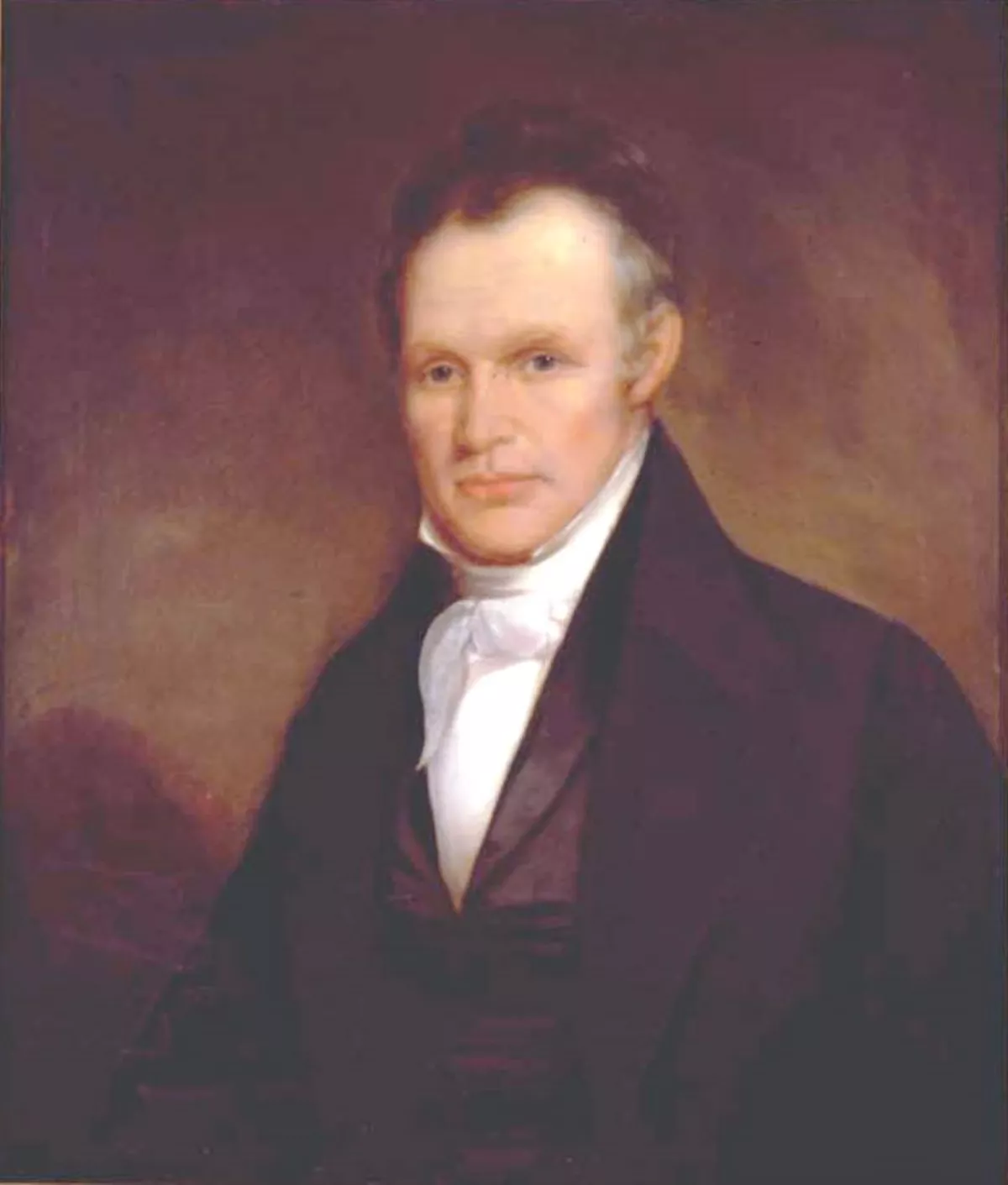 1.
1. Newton Cannon was an American politician who served as the eighth Governor of Tennessee from 1835 to 1839.

 1.
1. Newton Cannon was an American politician who served as the eighth Governor of Tennessee from 1835 to 1839.
Newton Cannon served several terms in the United States House of Representatives, from 1814 to 1817, and from 1819 to 1823.
Newton Cannon received a common school education and tried several occupations as a young man, working as a saddler, merchant and surveyor, and undertaking the study of law, before eventually becoming a planter in Williamson County.
Newton Cannon entered political office in 1811, representing Williamson, Rutherford, Maury, Bedford, Lincoln, and Giles counties in the state senate in the 9th Tennessee General Assembly.
Newton Cannon served in the Creek War of 1813 as a colonel in the Tennessee Mounted Rifles.
Newton Cannon won election to the seat as a Democratic- Republican the following year in a special election held after Grundy resigned.
Newton Cannon was later reelected to a full term in the House, serving from September 16,1814, to March 3,1817.
Newton Cannon was again elected to the US House for the 16th Congress and won re-election to the 17th Congress, serving from March 4,1819, to March 3,1823.
Newton Cannon first sought the Tennessee governorship in 1827 in a field that initially included Sam Houston, former governor Willie Blount, Felix Grundy, and aging frontiersman John Rhea.
Newton Cannon lost the election to Houston by a vote of 44,426 to 33,410.
Newton Cannon subsequently returned to the General Assembly as a state senator, representing Rutherford and Williamson counties in the 18th General Assembly, and aligned himself with Andrew Erwin, John Williams and Davy Crockett, to oppose the policies of Jackson and his allies.
Newton Cannon was elected as a delegate to the Tennessee Constitutional Convention of 1834, at which he served as chairman of the Committee of the Whole.
Newton Cannon again ran for governor in 1835, defeating incumbent William Carroll by a vote of 41,970 to 31,205.
Newton Cannon argued that the 1834 constitution was a revision rather than a replacement for the original constitution.
Newton Cannon's election was aided by division among Tennessee Democrat-Republicans over the US Presidential candidacy of Tennessean Hugh Lawson White in opposition to the national party's choice of Martin Van Buren.
Newton Cannon was the first member of the Whig Party to be elected governor of Tennessee.
Newton Cannon became the first governor to benefit from increased powers given to the office by the state constitution of 1834.
Newton Cannon was re-elected to a second term as governor in 1837, defeating General Robert Armstrong.
An advocate for public education, Newton Cannon designated some revenues from the state bank to pay for schools.
Newton Cannon was publicly criticized for his implementation of the new laws, especially in East Tennessee, where voters grew impatient over his lack of support for the Hiwassee Railroad.
Newton Cannon typically delivered slower, more methodical arguments, and was outshone in the debates by the quicker and wittier Polk.
Newton Cannon died in Nashville at the age of sixty, just two years after his last candidacy for governor.
Newton Cannon is interred in a cemetery on the grounds of his estate in Williamson County near Allisona.
Newton Cannon is purported to have lost substantial amounts of money and other possessions from gambling at Clover Bottom, and is said to have blamed Jackson and the Andersons for his losses, suspecting them of fixing races.
The second encounter occurred in 1812 when Newton Cannon served on a jury in a trial of Jonathan Magness who, with his two sons David and Perry Green, had been accused of murder in the death of Patten Anderson.
Newton Cannon is said to have believed that Jackson had deliberately exposed Newton Cannon and his men to unnecessary dangers.